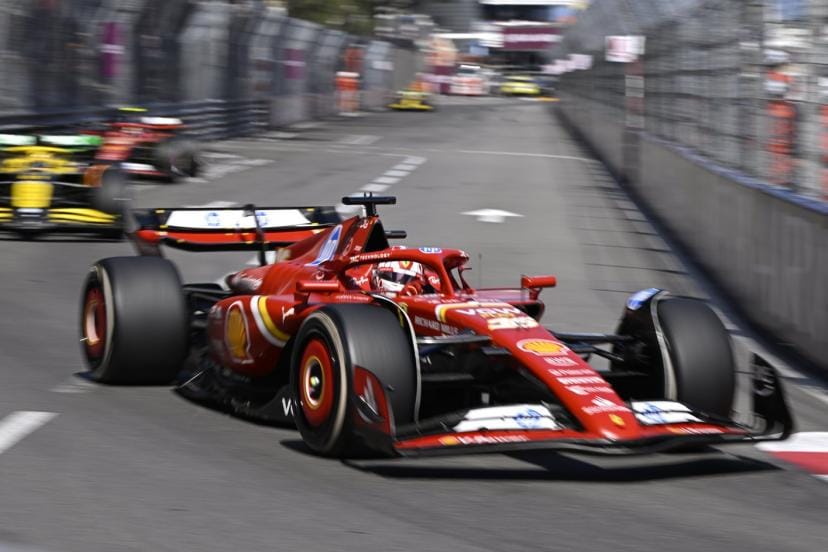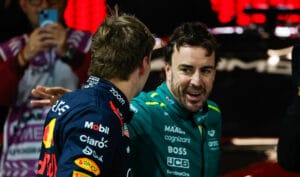“L’Équipe” has crunched the numbers to determine the automobile manufacturer that had the most successful sporting year in 2024, taking into account over fifteen Championships around the globe. The Italian brand outperformed Toyota and Porsche, with the Renault-Alpine-Nissan group securing the 5th place.
For the first time, L’Équipe wanted to identify the brand (or group) selling road cars that had the most success in competition in 2024 worldwide.
The chosen calculation rewards not only the results but also the brand’s presence in as many competitions as possible and the decision, in F1 or WEC in particular, to commit 100% rather than through a team or with an engine manufacturer. For instance, half of the points are distributed for McLaren in F1, powered by Mercedes, or for Porsche and Alpine in WEC (as they are associated with a team to run their car). Given their history and current commitments, Porsche and Ferrari were considered outside of their group (respectively Volkswagen-Audi and Stellantis).
The prestige and history of a competition are evaluated with a coefficient (up to x5 for F1, at the top). The number of manufacturers involved also inflates the points taken by teams in the top spots. The competitions considered are the six FIA World Championships (F1, WEC, Formula E, rally, rally-raid, and rally-cross), the IMSA (North American Endurance), Nascar (USA), IndyCar (USA), Super Formula (JAP), and a GT ranking composed from the results of this category in WEC, IMSA, GT World Challenge, DTM (GER), Supercars (AUS), and GT500 (JAP).
Finally, to acknowledge the crucial importance of these “monuments”, bonus points were awarded to brands that won the Monaco GP, the 24 Hours of Le Mans, the Dakar, the 500 Miles of Indianapolis, and the 500 Miles of Daytona. In the end, 215 points were theoretically available.
The Scuderia narrowly missed the F1 constructors’ title, which would have been a first since 2008, but it didn’t lose everything as it won this overall ranking for the year. The fact that it was the only brand fully committed in F1 and WEC greatly benefited it, especially with two podium finishes for the season in these categories (2nd in F1, 3rd in WEC). The prancing horse brand also won the two most important races on the FIA calendar – the Monaco Grand Prix (with Charles Leclerc) and the 24 Hours of Le Mans (with the 499P No. 50) -, earning an additional 9 points. The commendable performances of the 296 GT3, particularly in WEC and World Challenge (slightly less in DTM or IMSA), make this victory a triumph for the Italian brand.
Toyota, present in three FIA World Championships as well as two flagship championships, one in America and the other in Asia, along with the Lexus brand in GT, has one of the broadest footprints in auto racing. The tie with Porsche was resolved in favor of the Japanese manufacturer thanks to the three FIA titles won in WEC (with the GR010), in rally (with the Yaris GR Rally1), and in rally-raid (with the GR DKR Hillux), noting that the first two were only validated in the final moments of each race. Toyota could have avoided this tie if it had not finished last in Nascar (out of three manufacturers), and in Super Formula (against Honda). Its engagement as a technical partner of Haas at the end of the season was not counted.
Supported by the 911 GT3 R, which remains a staple in all GT competitions around the world (WEC title notably with the Manthey team), Porsche narrowly missed second place, hampered by the absence of a manufacturers’ title. The Stuttgart brand failed to convert Pascal Wehrlein’s Formula E championship into a manufacturers’ crown (taken by Jaguar), letting precious points slip away. The decision to commit to Endurance via the LMDh regulations, supported by the American team Team Penske and many parts (especially the chassis) manufactured by other companies also meant that its WEC points were halved, forcing it to settle for the last step of the podium.
Just off the podium, Mercedes rounds off a clearly detached quartet. The German brand benefits from McLaren’s F1 title, gaining half the points for its engine, plus a few points for its own fourth place among the manufacturers.
The same will soon be true for the Renault Group (5th), within which Alpine will abandon its own engines from 2026 in F1 (and will only score half the points from that date). Here too, the season is saved by the double Brazilian podium in F1 and some performances in Endurance (4th in WEC).
McLaren (6th) benefits from its first F1 title in the 21st century (and some bonuses for its commitments in IndyCar and FE as a team) to outpace some larger groups. Like BMW-Mini (7th), present in many Championships, but rarely successful (5th in WEC for example), except with its GT. The same goes for Honda (8th), limited by Max Verstappen‘s 3rd place in F1, but also its own performances in IMSA or IndyCar.
The Stellantis Group (9th with Peugeot, DS notably) counts a 4th place in Formula E as its best result among manufacturers this year (5th in WEC). Amid several multi-brand groups, Jaguar stands out with a single brand and a single commitment: Formula E, but crowned with success with the FE title that allows it to make the top 10.
Besides Aston Martin (12th), the bottom of the ranking includes four very large groups in terms of car sales worldwide. And, apparently, this quintet at the bottom of the class is already aware of its deficit in terms of motor racing, as all these groups have major projects underway towards Formula 1 in 2026 for Audi (a member of the Volkswagen group), Ford (associated with Red Bull) and General Motors (which will arrive with Cadillac as the 11th team in 2026) or towards the WEC for Aston Martin from this year and Hyundai (with the Genesis brand) a year later. The response is being organized.









